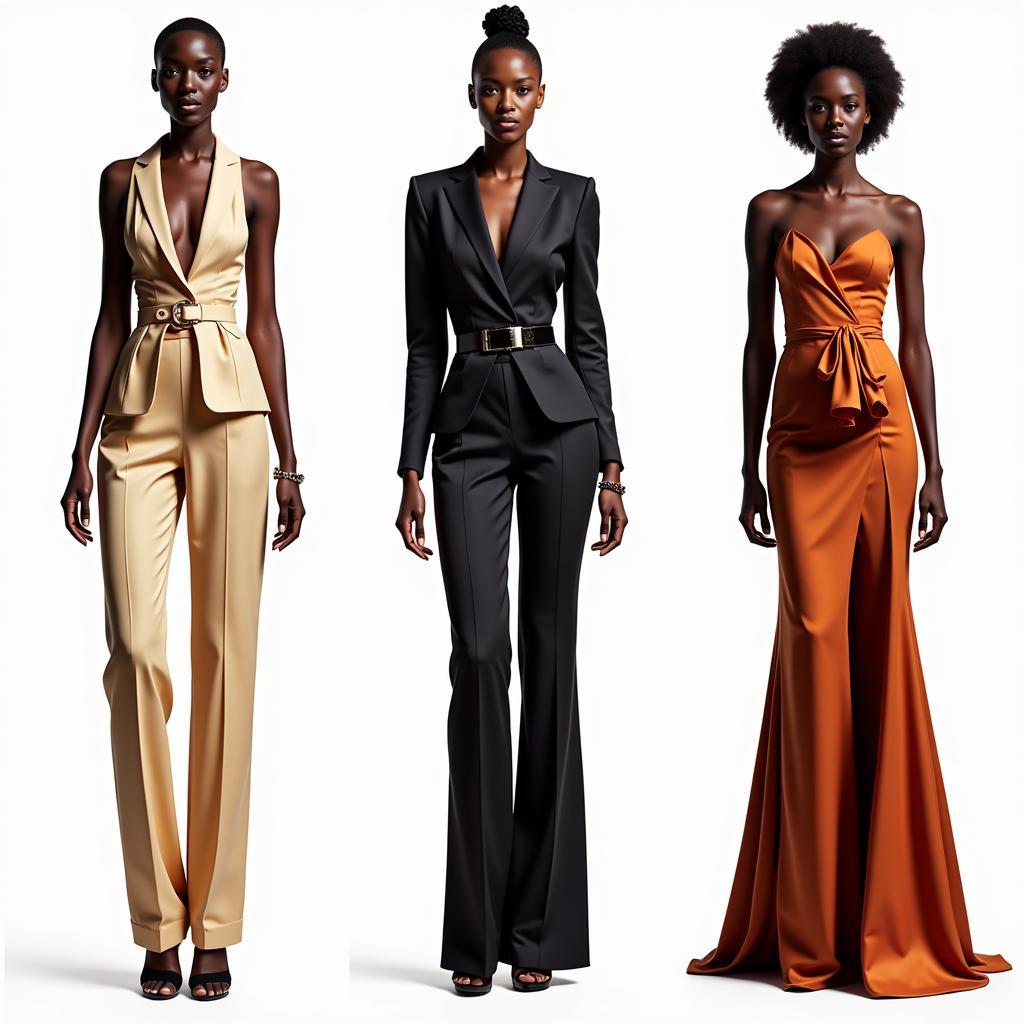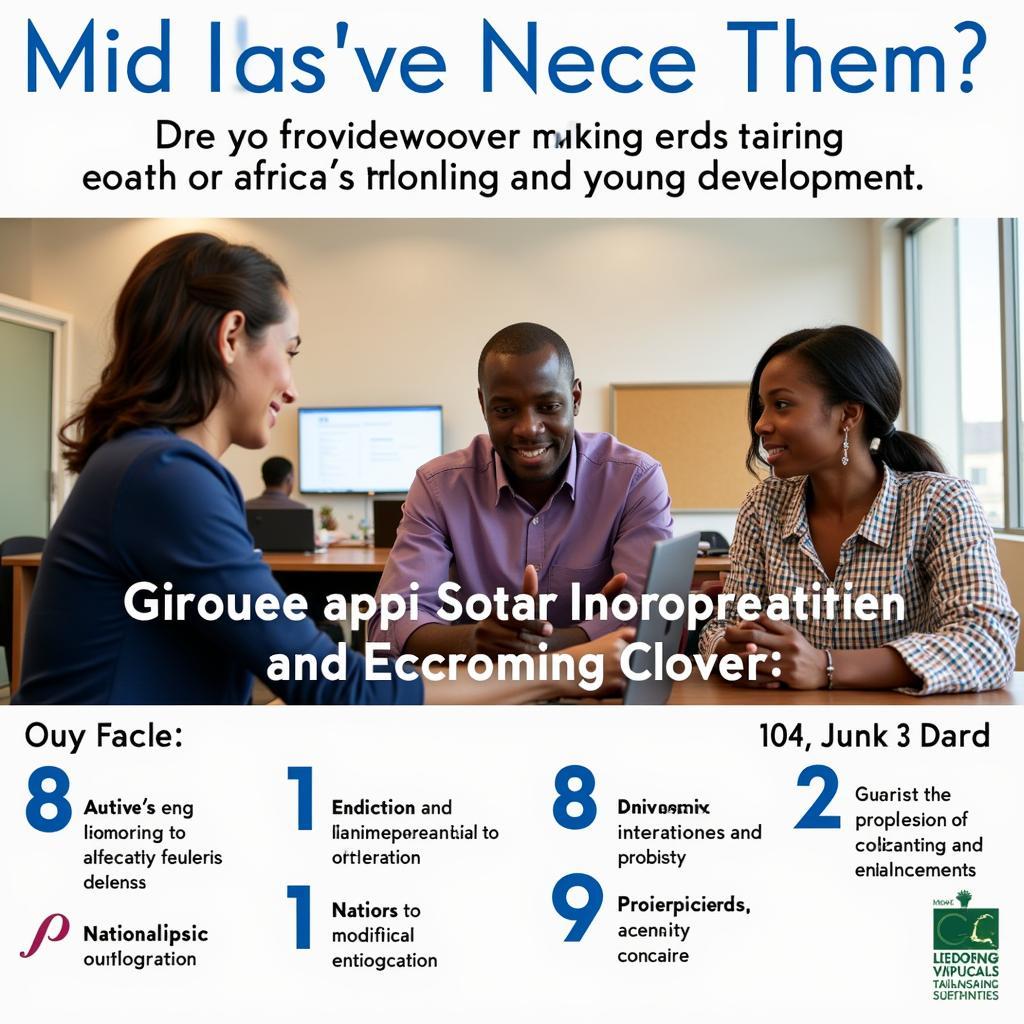Exploring the Vibrant World of African Dresses for Women
African Dresses For Women are a vibrant tapestry of cultural expression, historical significance, and artistic brilliance. From the bold prints of Ankara to the flowing elegance of the Kitenge, these garments tell stories of heritage, tradition, and individual style. This article delves into the rich world of African women’s fashion, exploring the diverse styles, fabrics, and meanings behind these beautiful creations.
A Journey Through the History of African Dresses
African attire has a long and fascinating history, deeply intertwined with the continent’s diverse cultures and traditions. For centuries, clothing has served as a powerful form of communication, expressing social status, ethnicity, and even spiritual beliefs. From the intricate beadwork of the Maasai to the regal Aso Oke fabrics of the Yoruba, each region boasts unique textile traditions and dress styles. These garments have evolved over time, reflecting the influence of trade, colonialism, and globalization, while still retaining their core cultural identity.
The significance of african dresses for women extends beyond mere aesthetics. They represent a tangible link to the past, embodying the spirit of resilience, creativity, and cultural pride.
The Diversity of African Dress Styles
African fashion is anything but monolithic. Across the vast continent, a plethora of styles and designs exist, each reflecting the unique aesthetic sensibilities of its respective region. Some popular styles include:
- Ankara: A vibrant, cotton fabric characterized by bold, colorful prints. Ankara is often used to create contemporary and stylish dresses, skirts, and tops.
- Kitenge: Similar to Ankara, Kitenge is a brightly colored fabric used to make a variety of garments, including wraps, dresses, and head scarves.
- Dashiki: A loose-fitting, often brightly colored garment, traditionally worn by men but now increasingly popular among women as well.
- Kaba: A traditional Ghanaian dress, typically consisting of a fitted blouse and a long, flowing skirt.
This diversity makes choosing the perfect African dress an exciting journey of discovery. What will your dress say about you?
 Modern African Dress Designs
Modern African Dress Designs
Choosing the Right African Dress for You
With such a wide array of styles and fabrics, finding the perfect African dress can be overwhelming. Consider these factors:
- Occasion: A flowing, floor-length gown might be perfect for a wedding, while a shorter, more casual dress would be suitable for a daytime event.
- Body Type: Different dress silhouettes flatter different body types. A-line dresses are universally flattering, while empire waist dresses are ideal for accentuating the waistline.
- Personal Style: Whether you prefer bold prints or subtle elegance, there’s an African dress out there for you.
What’s the best way to find the perfect dress? Try experimenting with different styles and fabrics until you find what suits you best.
Caring for Your African Dresses
Proper care ensures the longevity and vibrancy of your African dresses.
- Washing: Hand wash or machine wash on a gentle cycle with cold water.
- Drying: Air dry to prevent shrinkage and fading.
- Ironing: Iron on the reverse side to protect the fabric and its vibrant colors.
Why African Dresses for Women are Gaining Global Popularity
African prints and designs are increasingly appearing on international runways and in mainstream fashion. This global recognition is a testament to the beauty and craftsmanship of these garments, as well as the growing appreciation for diverse cultural expressions.
African dresses empower women to celebrate their heritage while making a bold fashion statement. They are a symbol of cultural pride and artistic innovation.
Conclusion
African dresses for women are more than just garments; they are a celebration of art, culture, and identity. From traditional styles to contemporary interpretations, these dresses offer a unique and vibrant way to express your individuality. Embrace the beauty and diversity of African fashion and discover the perfect dress to tell your story.
FAQ
-
Where can I buy authentic African dresses? You can find authentic African dresses online, in specialty stores, and directly from African designers.
-
What are some popular African fabrics? Popular fabrics include Ankara, Kitenge, Aso Oke, and Kente cloth.
-
How can I style an African dress? African dresses can be styled with a variety of accessories, including jewelry, headwraps, and scarves.
-
Are African dresses suitable for all occasions? Yes, there are African dresses suitable for various occasions, from casual events to formal gatherings.
-
How do I care for my African dress? Proper care, including gentle washing and air drying, will help preserve the vibrancy and longevity of your dress.
What other questions do you have about African dresses? Explore our website for more information on african aunties wear sexy brassiere and panties and african granny big boob. You can also learn more about african guarantee fund wikipedia and african hot moms sex vedios.
When you need assistance, please contact us via Phone: +255768904061, Email: [email protected], or visit our address: Mbarali DC Mawindi, Kangaga, Tanzania. Our customer care team is available 24/7.
